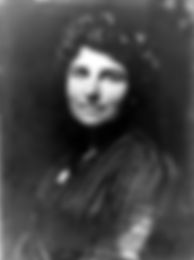Spotlight: Maud Booth, Co-Founder of VOA
- Mar 8, 2023
- 2 min read
Updated: Jul 22, 2025

Maud Booth was born Maud Elizabeth Charlesworth September 13, 1865, in Limpsfield, Surrey, England, to a family of social reformers. Her father, an Anglican rector, hosted meetings in the church courtyard for the Christian Mission, later known as The Salvation Army. It was there that she met Ballington Booth.
She joined the Salvation Army in 1882 and worked with Captain Catherine Booth, Ballington’s sister. Catherine and Maud went to Paris to share the Salvation Army’s message, but after a cold reception, they were arrested, interrogated, and ultimately expelled from the country.
Maud’s father was outraged with the news coverage and demanded she break ties with the Salvation Army and refused to give consent for her to marry Ballington. She waited until she became of legal age and married in 1885, changing her name to Maud Ballington Booth. In 1896, the couple broke from the Salvation Army and founded Volunteers of America, where her influence on the charter constitution directed that men and women were to be treated equally.

In her lifetime, Maud Booth organized a group of women known as the “slum sisters” to care for the elderly, sick, and the poorest in London, eventually bringing a version of it to America in 1894. She founded the National Florence Crittenton Mission in 1895, providing support and education to young and unmarried mothers. During WWI, she was appointed as the first woman special agent in the U.S. Department of Justice to investigate violations of the Mann Act, a law passed to prohibit the transportation of women across state lines for “immoral purposes.”
However, Maud Booth’s most passionate cause was prison reform. She was a vocal advocate for better conditions for inmates. After starting a prison ministry at Sing Sing Correctional Facility in New York and answering every letter of correspondence personally, she eventually grew Volunteer Prison Leagues. With donations from their local chapters, she built a halfway house for newly-released prisoners. In addition, she provided food, clothing and shelter for their families, ensuring that each child received a Christmas gift as well as new clothing and shoes for school. In 1920, she became the first woman to address a national convention of the Republican Party and used the platform to speak about prison reform. Maud continued to be actively involved in social and prison reform until her death in 1948.

An author of several books, a devoted Christian, and an accomplished social reformer, Maud Booth created a legacy that lives on today. At VOAWW, “Maud’s House” is a transitional shelter
for women and their children, a nod to her work in San Francisco where she set up a home to care for abandoned youth of any color, faith, or age. Our Maud’s House program keeps mothers and their children together, helping them work through trauma, learn self-sufficiency, and gain valuable life skills.
In honor of 125 years as an affiliate of Volunteers of America, we celebrate Maud’s dedication to the most vulnerable among us and applaud all who partner with us in our mission to empower individuals and strengthen communities.

